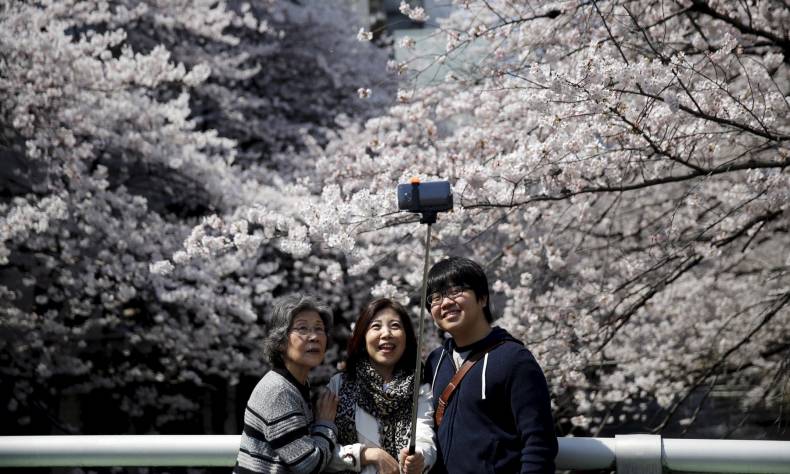
Sino-Japan Relationship Improving But Needs Work
The China-Japan relationship is a curious one, a dynamic with many complicated elements and varying narratives. The relationship is one steeped in history and disagreement yet buoyed by massive trade numbers. Yet despite the oftentimes contentious dynamic, how these two great powers interact will go a long way towards determining the stability of the Asia-Pacific region.
The main area of contention for the two countries stems from Japan’s imperialism begun in the late-19th century, leading over time to the 1937 Japanese invasion that preceded World War II and the subsequent Nanjing Massacre, also known as the Rape of Nanjing. China feels that Japan has not done enough to atone for its wartime atrocities while Japan revisionists feel that the incident has been overstated, with some even outright denying it happened. Such views understandably do not sit well in China. Despite a number of apologies by various Japanese leaders, most notably by Prime Minister Tomiichi Murayama in 1995, many Chinese feel the apologies do not go far enough and are offended by the denials or repeated visits to the Yasukuni Shrine that follow. The Chinese response to Prime Minister Shinzo Abe’s August apology demonstrates China’s official position of dissatisfaction, the apology derided for lacking sincerity.
In addition to the two countries’ wartime history, another more recent issue that continues to stoke the fires of nationalism is the Diaoyu/Senkaku islands dispute. Although the protests have died down from the furor of 2012 that led to protests across China, both peaceful and not, the islands remain a sore point for both countries. Not helping matters is the official position of the U.S. that requires them to help defend the islands from all attacks under the Treaty of Mutual Cooperation and Security between the United States and Japan, as well as China’s 2013 establishment of the East China Sea Air Defense Identification Zone.
Combine these issues with Japan’s anger at China’s recent submission of historic documents to UNESCO’s Memory of the World Register, as well as Japan’s election to the UN Security Council as a non-permanent member, and the issues that have long determined the two countries’ opinions of each other are still a major barrier to more amicable relations.
In the face of all the nationalistic barbs tossed back and forth between governments, how do everyday Chinese and Japanese people view each other? Not favorably, if recent polls are to be believed. According to a September 2015 report from the U.S.-based Pew Research Center, only 12 percent of Chinese respondents view Japan in a favorable light, with that number down to 9 percent for Japanese respondents and their opinions of China. Yet a quick look at comparable numbers in a similarly-themed survey from Pew in 2014 show that these low numbers are actually a slight improvement, with Japanese favorability in China only 8 percent and Chinese favorability in Japan only 7 percent the previous year.
Another 2015 survey offers a slightly more optimistic take, the Sino-Japanese public opinion survey jointly conducted by China International Publishing Group and the Japanese non-profit think tank Genron NPO finding that Chinese opinion of Japan may be improving, as while only 11.2 percent of Japanese respondents view China in a positive light (up from 7 percent last year), that number jumps to 21.4 percent on the Chinese side (up from 11.3 percent).
So then how can the dramatic influx of Chinese tourists to Japan be explained? Why would tourists from one country if they look upon that country so unfavorably? Most likely because the everyday Chinese citizen does not care about Chinese nationalism and simply wants to travel, to check out some hip Japanese anime, and purchase a quality toilet seat. Just as a percentage of Japanese citizens don’t really care for Prime Minister Shinzo Abe’s moves to militarize Japan and instead are clamoring for an adherence to pacifism.
Another interesting tidbit that is often left out of any argument about how the Sino-Japanese relationship has devolved into one of historical revisionism and island disputes is the importance of their trade relationship. China was Japan’s largest market for imports and total trade in 2014, and was surpassed by only the U.S. in terms of Japanese exports. Figures from the Japan External Trade Organization show total trade between the two countries for 2014 was worth $343.7 billion, up 0.2 percent from 2013. And with a Seoul meeting between President Park Geun-hye of South Korea, Prime Minster Shinzo Abe, and Premier Li Keqiang tentatively planned for November – the first trilateral meetings between such high-ranking officials since 2012 – many are hopeful that relations in East Asia are warming up ever so slightly.
For all the biting comments each country makes, these two Asian giants are inextricably linked together now and well into the foreseeable future. While little progress appears to be being made in terms of compromise on each country’s official position towards history, trade and investment between the two countries is set to increase, which may help smooth relations. And if neither country is willing to compromise their position, then both should make more of a concerted effort to de-emphasize nationalistic fervor while promoting cooperation and rebuilding the bridges burned in the past.
 Facebook
Facebook
 Twitter
Twitter
 Linkedin
Linkedin
 Google +
Google +










